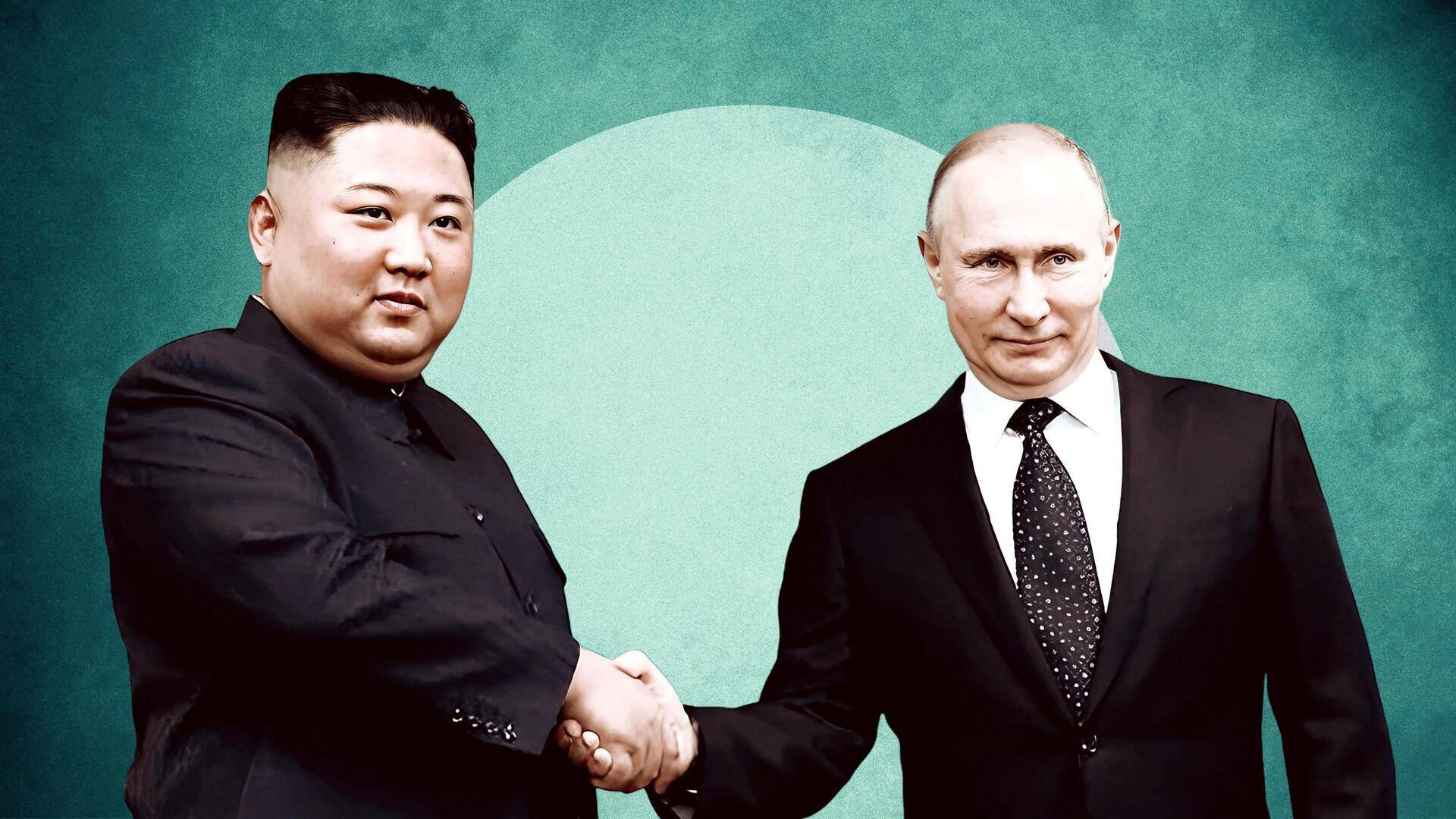
Kim Jong-un headed for summit with Putin: Report
What's the story
North Korean Supreme Leader Kim Jong-un has reportedly left for Russia to attend a summit with President Vladimir Putin, South Korean broadcaster YTN reported.
He is en route to Vladivostok in an armored train used for his foreign visits. The report said the meeting is likely to be held on Tuesday.
Russian news agency Interfax earlier reported that Kim's visit was expected "in the coming days."
Context
Why does this story matter?
If the reports are true, it would be Kim's first foreign trip since the COVID-19 pandemic.
His last one was also to Vladivostok in 2019 after North Korea's talks of nuclear disarmament with the United States (US) collapsed.
The meeting comes amid escalating North Korea-US tensions. Notably, North Korea, along with Russia and China, is part of an eastern bloc opposing the US-dominated world order.
It is also reportedly planning to supply weapons to Moscow amid the Russia-Ukraine war.
Insights
Economic cooperation, security could be meeting's agenda
The Kim-Putin summit is anticipated to center on economic cooperation and regional security issues. Notably, both countries share around 17km of terrestrial border.
The leaders are likely to discuss ways to bolster economic ties between North Korea and Russia, including potential gas pipeline and railway connections, since both are facing international sanctions.
They might also address regional security concerns, such as the situation on the Korean peninsula and the ongoing conflict in Syria.
Details
Past visits shaped North Korea's diplomacy
Kim's past foreign visits have played a crucial role in shaping Pyongyang's foreign policy. In 2018, he became the first North Korean leader to cross into South Korea since 1953 for a summit with former President Moon Jae-in.
This led to the historic Singapore summit with then-US President Donald Trump, discussing denuclearization of the Korean peninsula, among other issues.
However, talks collapsed in 2019, and recently, Pyongyang claimed to have developed its first nuclear-capable submarine.